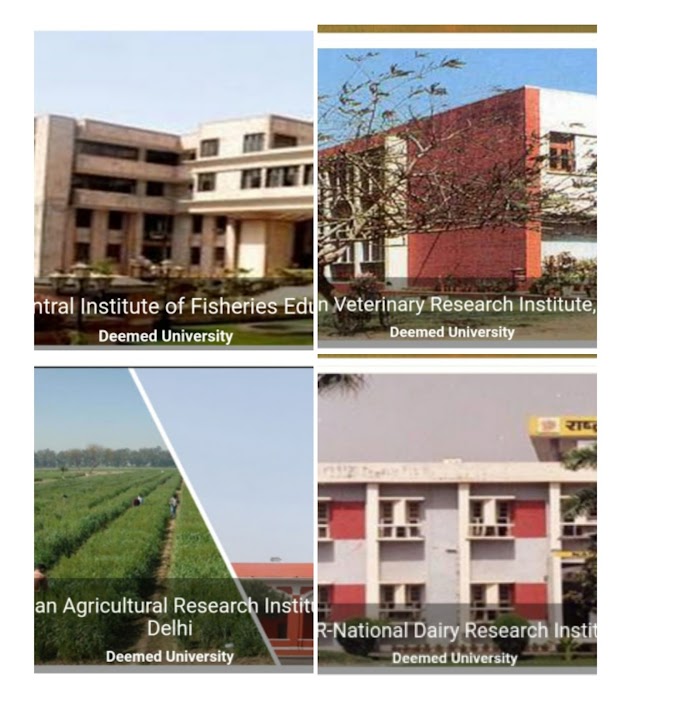Whenever we talk about farmers demands, protest and recommendation the first thing comes in our mind was the National Commission on Farmers (NCF) Swaminathan committee report. Many people talk about proper implementation of Swaminathan report. Let’s know about the report and its recommendations in this blog. /span>
Highlights:
* National Commission on Farmers
* Suggestions/ Recommendations of Swaminathan Committee
National
Commission on Farmers

(Image Credit : commons.wikimedia.org)
Farmers suicide in India is very crucial matter, the numbers were in increasing manner from last few years. To address the nationwide problem of farmer’s suicide Government of India constituted the National Commission on Farmers (NCF) under the chairmanship of Prof. M.S. Swaminathan. The commission has submitted four reports from the year 2004-06 and the fifth and final report was submitted on 4 October 2006. The final report contain suggestions to achieve the goal of ‘faster and more inclusive growth .These approaches were included in 11th Five Year Plan and are collectively termed the M .S. Swaminathan report for farmers.
Mainly to address the farmer’s suicide problem the
committee was constituted. There were other issues on which NCF is mandated to
make suggestions. Such as
1. To prepare medium - term strategy for food and
nutrition security in the country
2. For
enhancing productivity, profitability, and sustainability of the major farming
systems of the country.
3. To form Policy reforms to substantially increase
flow of rural credit to all farmers;
4. To formulate special programmes for dryland farming
for farmers in the arid and semi-arid regions, as well as for farmers in hilly
and coastal areas
5. Suggestions for enhancing the quality and cost
competitiveness of farm commodities so as to make them globally competitive
6. To make strategies for protecting farmers from
imports when international prices fall sharply
7. Empowering elected local bodies to effectively
conserve and improve the ecological foundations for sustainable agriculture.
Recommendations
of Swaminathan Committee:
The recommendation of Swaminathan committee can be studied under following heads such as asset reforms, reform in support services, farmers of the future, attracting youth, public policy and sustainable livelihood.
 |
| (Image Credit :indianexpress.com) |
Reforms
of Agricultural Assets
Land
Reforms:
* To bring reforms in tenancy laws, land leasing,
distribution of ceiling surplus land and wasteland.
* Prevent scattering of main agricultural land and
forest land to the corporate sector for non-agricultural purposes.
* In providing grazing rights and seasonal access to
forests to tribal and pastoralists, and access to common property resources.
* To establish a National Land Use Advisory Service
which will be helpful to link land use decisions with ecological meteorological
and marketing factors on a location and season-specific basis.
Irrigation
/Water:
* Making rainwater harvesting and aquifer recharge
mandatory for the farmers and they should be provided with financial assistance
in developing such projects.
*The improved irrigation practices, including
sprinkler and drip irrigation should be given more priority along with
cultivation of high value but low water requiring crops should be promoted in
water scared areas.
* For sustainable use of groundwater water literacy
movement, for equitable distribution of water Pani Panchayat in every village
should be encouraged
Livestock
and Fisheries:
*
Establishment
of Livestock Feed and Fodder Corporations at the State level to get quality
feed and fodder and establishment of
National Livestock Development Council for integrated and overall
development of livestock’s.
* To impart training to fisherman establishment of
Fish for All Training and Capacity Building Centers.
Bio
resources:
*Preserving
traditional rights of access to non-timber forest products like medicinal
plants, gums and resins, oil-yielding plants and beneficial micro-organisms.
Conserving, enhancing and improving crops and farm animals as well as fish
stocks through breeding.
* The genetic technology for the development of novel genetic combinations for important economic traits, such as resistance to biotic and abiotic stresses should be used in prolific manner.

(Image Credit :financial.express.org)
>Reforms
in support services:
Agro-
metrology:
*Formation of a National Land Use Advisory Service and
integration of internet-FM or HAM radio service to help fishermen fishing in
the high seas.
Credit
and Insurance:
* Need to expand outreach of formal credit system and reduction
on crop loan interest rates to 4%.
*Establish an Agriculture Risk Fund to provide relief
to farmers.
* Need of Integrated credit-cum-crop-livestock human
health insurance package and provision of Crop insurance across country for all
crops with reduced premiums.
* Expansion of Kisan Credit Cards to women.
Food
Security:
* Implementation of a universal public distribution
system
* Delivery of nutrition support programmes should be reorganized
with a life-cycle basis with the participation of Panchayats and local bodies.
* Through an integrated food cum fortification
approach need to eliminate micronutrient deficiency induced hidden hunger.
* Need to have National Food Guarantee Act continuing
the useful features of the food for work and employment guarantee programmes.
* Community Food and Water Banks operated by Women
Self-help Groups (SHG) establishment
Apart from the above recommendations committee had
also gave some suggestions for future farming or agriculture system like
* Cooperative Farming and Service Cooperatives
* Adaptation of Group Farming and Contact Farming
practices
* Farmers’ Companies: Small farmers and SHGs should be
associated with such companies as stakeholders and not just as shareholders.
* Attracting Youth in agriculture or farming
>Most of the recommendation made by the committee were
implemented by the both the state and central government under various schemes
and programmmes. But when it comes to the recommendation on minimum supporting
price (MSP) major disagreement lies between the governments and the committee.
Thus instead
of shying away from agricultural reforms, the governments must address the
challenges and implement strategies towards uplifting the standard of living of
our farmers.
(Content Sources: Swaminathan Committee Report: An
Overview by Biswajit Hota and S. P. Singh)




0 Comments